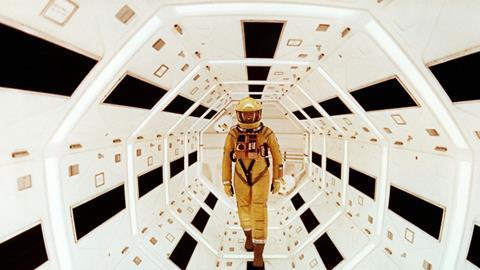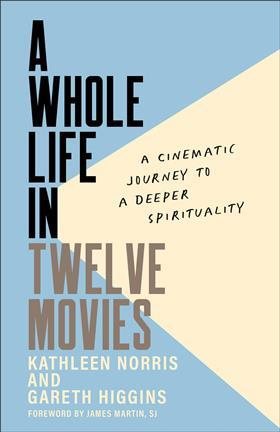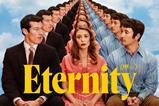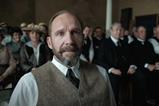A Whole Life in Twelve Movies promises readers “a journey through life, spirituality and what it means to be human”. But our reviewer says it stumbles along the way

In A Whole Life in Twelve Movies: a Cinematic Journey to a Deeper Spirituality, (Brazos Press) American poet Kathleen Norris and peace activist Gareth Higgins discuss movies that can help us better understand our lives from beginning to end.
Each chapter turns the spotlight on a different film, including 2001: A Space Odyssey, Malcolm X and Babette’s Feast. Through the course of the book, Norris and Higgins aim to take a cinematic path to reflecting on universal topics such as belonging, vocation, identity, success, generosity, dealing with conflict, and what it means to be human.
If that sounds like perhaps too broad a range of topics, it’s because it is. The authors are clearly aiming to write a book with a universal scope, but by trying to write something for everyone, it ends up being something for no-one.
There are some positives. The story of Christian de Chergé, an abbot who wrote a letter pre-emptively forgiving his future assassins is memorable. But no sooner have we started to get into something interesting, than we’re onto the next, seemingly unconnected topic. The authors write with some sensitivity about difficult topics like death and personal healing. If the book were titled Twelve Movies Dealing with Grief it might be valuable. As it stands, it is difficult to see who this book is for.
Another barrier to this book finding a home is the choice of films. The stated aim is for it to be used as a resource to guide individuals and groups to watch and discuss movies over the course of a year. But there are barriers. Chapter seven’s films to watch are Make Way for Tomorrow (1937) and Love Is Strange (2014). Putting aside that this is one of the chapters that focuses on two films rather than one (making it ‘A Whole Life In Fourteen Movies’), Make Way for Tomorrow is one of the films selected that is not available to rent, buy or watch on any of the streaming services. When the book also tells us that both films have essentially the same plot, it does seem a tall order to expect people to hunt down and watch both. That might be a reasonable request for a film professor to assign to his class of undergrads, but for people with busy lives, it feels like a stretch.
When the book does swing towards the popular, it can have brief but profound reflections: I had never considered that 2001: A Space Odyssey could be seen as a meditation on pregnancy and finding the patience to simply wait for a child to be born. But beyond that, the chapter offers little insight into the film that I couldn’t find in countless other books dedicated to Kubrick’s masterpiece.
In chapter ten, Norris and Higgins appear to fleetingly strike the right balance between the obscure and the over-analysed. Wonder Woman 1984 came out in 2020 and as a result of the pandemic, it never quite got the critical appraisal it deserved. So a chapter about ‘Transforming Conflict’ on this film sounds ideal. Sadly, Norris betrays a certain unease when it comes to the superhero genre - spending the first page debating whether comic book movies are worthy of study. At one point, she openly frets over readers who: “may find it odd to find Gareth taking a Wonder Woman film so seriously”. Norris seems to imply that it’s a novelty that anyone would treat a superhero film with respect: “I much prefer movies about conflict and reconciliation that feature human beings and not fictional superheroes”. She then goes on to talk about two films utterly unconnected to the film the chapter is purportedly about.

There are times like this where you feel that the authors are straining in two different directions. But more often than not, the opposite is the problem. Each chapter begins with one author talking about the film, followed by the second author having a separate section attempting to build on what has come before. This means that space is often devoted to one writer echoing the words of the other, at one point going as far as to quote them verbatim. Higgins reaches for the universal while Norris delights in the obscure, and no happy medium can be found. This inevitably means that the reader will find themselves being drawn to one authorial voice, and enduring the other.
The overall experience of reading this book is that it is simultaneously too much, and not enough. A broad range of films and topics covered, but never in the depth these issues deserve to be looked at. At times, A Whole Life in Twelve Movies drifts into the realm of self-help books, and there’s nothing in content to strongly disagree with, but the advice is so broad, the insights so fleeting, that it feels a bit hollow.
A Whole Life in Twelve Movies by Kathleen Norris and Gareth Higgins is out now








































No comments yet